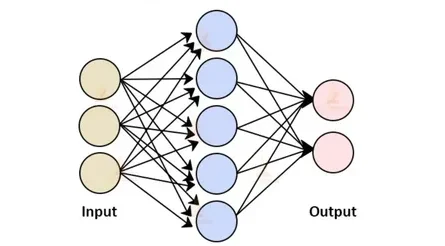New research conducted by Yevgenia Kozorovitskiy and a team of researchers from Northwestern University has shed light on a strange phenomenon – acute sleep deprivation can actually have temporary antidepressant effects. While chronic sleep loss has been widely studied and proven to have detrimental effects on both physical and mental health, the short-term effects of sleep deprivation are less well understood.
To investigate this phenomenon, the researchers devised a unique experiment involving mice. The mice were kept awake for extended periods using a device consisting of a small platform above a rotating beam. If the mice fell asleep, they would fall off the platform and wake up due to the beam’s rotation. This allowed the researchers to study the effects of acute sleep deprivation without inducing excessive stress in the animals.
After being kept awake for 12 hours, the mice exhibited hyperactivity and hypersexual behavior. While these traits subsided after a few hours, tests designed to assess depressive states revealed distinct antidepressant qualities that lasted for up to three days post-sleep deprivation. Further investigation identified heightened activity in dopamine neurons as the trigger for these behavioral changes.
The researchers focused on three specific brain regions – the prefrontal cortex, the nucleus accumbens, and the hypothalamus – which appeared to be primarily responsible for the effects of sleep deprivation. Specifically, dopamine neurons in the prefrontal cortex were found to be solely responsible for the antidepressant effects observed in the mice. Additionally, the researchers discovered that sleep deprivation induced synaptic plasticity in the prefrontal cortex, contributing to its antidepressant effects.
Although the exact reasons behind these effects remain uncertain, Kozorovitskiy suggests that sleep deprivation may have evolutionary benefits. In certain situations where there is a predator or imminent danger, being alert and awake for a short period of time could be advantageous. However, chronic sleep loss is known to have uniformly detrimental effects on overall health.
The implications of this research are promising for the development of new therapeutics for mood disorders. By understanding the mechanisms behind the rapid antidepressant effects of sleep deprivation, researchers may be able to develop pharmacological interventions that act more quickly than current treatments, which can take weeks to take effect.
However, Kozorovitskiy emphasizes that these findings should not be taken as an encouragement for depressed individuals to stay up all night in an attempt to elevate their mood. The antidepressant effects of sleep deprivation are temporary, and a good night’s sleep is still crucial for overall well-being. Instead, engaging in physical exercise or taking a leisurely walk may be more beneficial for improving mood.
In conclusion, this research provides valuable insights into the complex relationship between sleep deprivation and mental health. While further studies are needed to fully understand the underlying mechanisms, the findings offer hope for future advancements in the treatment of mood disorders.
*Note:
1. Source: Coherent Market Insights, Public sources, Desk research
2. We have leveraged AI tools to mine information and compile it



